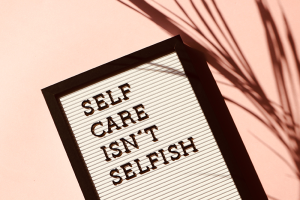You found our post on How to Increase Mindfulness
In our fast-paced world, it’s easy to get caught up in the whirlwind of daily activities and lose touch with the present moment. Mindfulness, the practice of being fully aware and present in the moment, can help reduce stress, improve focus, and enhance overall well-being.
Here are some effective strategies to increase mindfulness and bring peace and clarity into your life.
This post on increasing mindfulness is similar to our previous post on tips for improving your sleep.
This post includes:
- mindfulness
- mindful self compassion
- mindfulness meditation
- mindset
- meditation and mindfulness
- subconscious
Let’s get to it!
List of How to Increase Mindfulness
1. Start with Breathing Exercises
Breathing exercises are a simple yet powerful way to center yourself and enhance mindfulness. Try the following technique:
- Deep Breathing: Sit or lie down in a comfortable position. Close your eyes and take a deep breath in through your nose, allowing your belly to expand. Exhale slowly through your mouth. Repeat this process for a few minutes, focusing solely on your breath.
2. Practice Meditation
Meditation is a cornerstone of mindfulness practice. Even a few minutes a day can make a significant difference:
- Guided Meditation: To help you focus and stay on track, use a meditation app or watch a guided meditation video.
- Body Scan: Sit quietly and mentally scan your body from head to toe, paying attention to any sensations or areas of tension.
3. Engage in Mindful Walking
Walking can be a meditative practice when done mindfully:
- Mindful Walking: Take a walk in a quiet place. Focus on the sensation of your feet touching the ground, the rhythm of your steps, and the sights and sounds around you. Try to stay fully present in the experience.
4. Incorporate Mindfulness into Daily Activities
You can practice mindfulness during routine activities:
- Mindful Eating: Pay attention to your food’s taste, texture, and aroma. Chew slowly and savor each bite, focusing on the experience of eating.
- Mindful Cleaning: While cleaning, concentrate on the movements of your hands, the feel of the cloth, and the transformation of the space. This turns a mundane task into a mindful practice.
5. Create a Mindfulness Routine
Establishing a regular routine can help integrate mindfulness into your daily life:
- Morning Routine: Start your day with a few minutes of meditation or deep breathing.
- Evening Routine: Wind down with a mindfulness practice such as journaling or a body scan meditation before bed.
6. Use Mindfulness Reminders
Reminders can help you stay mindful throughout the day:
- Mindfulness Bells: Use a mindfulness app that rings a bell at random intervals, reminding you to pause and take a deep breath.
- Sticky Notes: Place sticky notes with mindfulness reminders in places you frequent, like your bathroom mirror or computer screen.
7. Practice Gratitude
Focusing on gratitude can enhance mindfulness and positivity:
- Gratitude Journal: Each day, write down three things you are grateful for. Reflect on these moments and appreciate them fully.
8. Limit Multitasking
Multitasking can scatter your focus and reduce mindfulness:
- Single-Tasking: Focus on one task at a time. Give it your full attention and complete it before moving on to the next one. This practice can improve your efficiency and mindfulness.
9. Engage in Mindful Listening
Improve your relationships and mindfulness by practicing active listening:
- Active Listening: When conversing with someone, give them your full attention. Listen without planning your response. Notice their words, tone, and body language.
10. Take Mindfulness Breaks
Incorporate short breaks throughout your day to reset and refocus:
- Micro-Meditations: Take a few moments to close your eyes, breathe deeply, and clear your mind. Even a one-minute mindfulness break can help you feel more centered.
Final Thoughts On Increasing Mindfulness
Increasing mindfulness is a journey that involves consistent practice and a willingness to stay present. By incorporating these strategies into your daily routine, you can cultivate a greater sense of peace, clarity, and well-being. Start small, be patient with yourself, and enjoy the process of becoming more mindful each day. Embrace the present moment and experience the transformative power of mindfulness in your life.
Next, check out our post of our top 15 meditation books of 2024.







